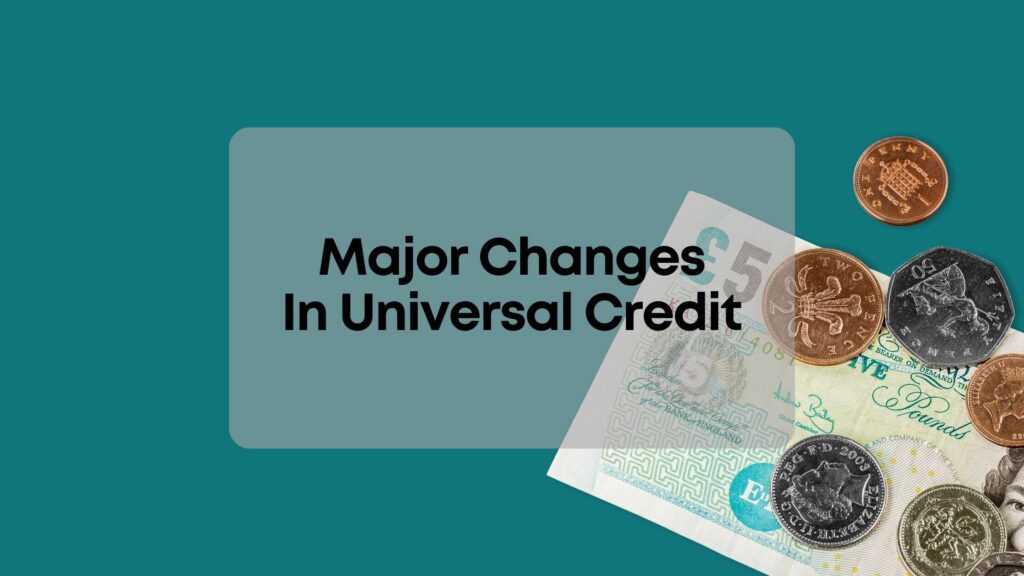Universal Credit and benefit systems are a lifeline for many across the UK, offering financial support to those in need. The government has proposed several major changes in Universal Credit that could significantly affect individuals relying on these benefits, and it’s essential to understand what these could mean for individuals relying on these services. Here’s a detailed look at how these updates could affect you from receiving benefits and pensions.
Overview of Recent Universal Credit Changes
Universal Credit, which is a major government program to help people with their finances/the government’s primary welfare reform initiative, has changed a lot recently. Universal Credit is among the benefit payments that will increase from April 2024. The monthly standard allowance for claimants under 25 will rise from £292.11 to £311.68, while for claimants over 25 will rise from £368.74 to £393.45. Couples under 25 will see their monthly payment increase from £458.51 to £489.23, while couples over 25 will see their payment go up from £578.82 to £617.60 a month. This is part of the government’s plan to make things simpler and to help more people find jobs.
1. Changes to Work Coach Rules
Under this change, individuals risk losing their benefits after 12 months if they fail to meet the conditions set by their work coach. This includes accepting available job offers. This means if you don’t agree to take a job they suggest, you might lose your benefits.
2. Speeding Up Managed Migration
The process of moving from existing state benefits to Universal Credit, also known as migration, is faster and easier now. Adjusting to a new system can be a challenging task for households. Delays due to administrative shortcomings or unpreparedness can cause disruption and financial instability.
3. Finding Extra Work for Benefits
Part-time workers who receive benefits may now need to work more hours to maintain their benefits. This change could lead to increased stress and workloads for part-time employees.
4. Tightening Work Assessment
Qualifying for sickness benefits (through the Work Capability Assessment (WCA)) has become stricter. Even people with health problems might be told they need to go back to work. This could be really hard for those facing health issues.
5. Changes to the “Fit Note” System
The responsibility for determining eligibility for sickness benefits has shifted from doctors to other healthcare professionals. This change might make it more challenging for some sick people to get the help they need.
6. Reforms to Personal Independence Payments (PIP)
The proposed adjustments to PIP, especially concerning mental health conditions, may significantly change the experience and support for claimants. That could involve more medical evidence or changes in the types of assistance available to those in need of Personal Independence Payment (PIP).
Need Expert Help?
Do you need further advise on how to cope with these new changes with Universal Credit. Book a Free Consultation with us today!
07564 964 141Impact on Benefits Recipients
The recent changes to benefits are having a significant effect on people who rely on them. These modifications cause worries and change how people plan their finances, especially for those who need support. One major change is that people now have to work harder to keep their benefits. They have to follow stricter rules and find jobs quickly, or they risk losing their support, creating more pressure and uncertainty for many people. Here are some impacts on benefits recipients:
- The Pressure on Beneficiaries
People who get benefits, especially those who’ve been out of work for a long time,are feeling the pressure to find jobs. They’re facing stricter rules and have to work closely with job coaches to get employed fast, or their benefits could stop.
- Adjusting in Benefit Migration
Families transitioning from old benefits to Universal Credit are facing a faster process that’s tough to adapt to. If they don’t move quickly enough, they could lose their current benefits, causing chaos and money problems. More than 500,000 families have been warned about this big change, so being ready is super important.
- Part-Time Workers are Under Pressure
For people who work part-time and rely on benefits, the lines between work and support are blurring. They might have to work more hours to keep their benefits, which can be challenging. It’s almost like they’re walking on a tightrope, trying to balance work, life, and support all at once.
- Stricter Assessments Add Stress
Even people with mild health issues are facing tougher evaluations to get benefits. If they don’t pass, they could lose their support, adding more stress and pushing them into a bureaucratic nightmare to appeal.
- Changes to Fit Notes Make Things Tricky
New rules make getting fit notes for benefits harder. That requires more paperwork and delays, leaving people in financial uncertainty during already tough health struggles.
- Changes to PIP Could Leave Some in the Lurch / Unstable Stage
Proposed changes to Personal Independence Payments (PIP) are worrying people with mental health issues. They’re scared they might lose the help they’ve relied on for so long as the system gets tougher.
Maximising Benefits Under the Changes
To adapt to these changes, people need to get smart about how they use benefits. They need to understand the new rules, follow them carefully, and find other ways to stay financially stable.
- Being Proactive about Finding Work
Job seekers must take an active approach, utilising resources such as job coaches and workshops to enhance their chances of securing employment.
Moving to Universal Credit requires planning and precision. Clear instructions and deadlines are crucial to avoid missing out on benefits. Getting help from support groups and legal services can make a big difference.
- Finding Balance in Part-Time Jobs
For part-time workers, it’s about finding a balance between work and benefits. They might need to look for better-paying jobs or career growth opportunities to stand on their own two feet.
- Getting Ready for Tougher Assessments
Having all the proper health documents and knowing their rights can help people get through the stricter assessment process with less stress.
- Dealing with Fit Note Hassles
Being prepared for fit note issues means having a network of healthcare pros who understand the system and can provide the right paperwork on time.
- Preparing for PIP Changes
People relying on PIP should prepare for the new rules by learning about them, gathering evidence, and seeking help from support groups.
At the end, while these proposed major changes in Universal Credit are challenging, they also bring opportunities for growth and a chance to rethink how work and support fit together in our lives. The proposed changes will take effect after the election if the Conservative party wins. By preparing for these changes now, beneficiaries can navigate the transition more smoothly and minimise any potential disruptions to their support.
Frequently Asked Questions
What is the meaning of Universal Credit?
Universal Credit provides financial help to people who are not yet old enough for a pension and don’t earn much or have a job. It assists with housing costs and childcare and supports those with disabilities, caregivers, and those too unwell to work.
Is Universal Credit going up?
Yes. Universal Credit and other benefits rose 6.7%, aligning with last year’s inflation rates.
What factors affect Universal Credit?
If your wages go up, your Universal Credit payment will be reduced. If you stop working or your wages go down, your payment will increase. There are different rules if you’re self-employed. For every £1 you earn from working, your Universal Credit payment goes down by 55p.
How does Universal Credit work?
Universal Credit is calculated based on your circumstances each month. These are called your ‘assessment periods’. You’ll usually get your Universal Credit payment 7 days after each monthly assessment period ends.
What can affect my benefits and why do savings affect Universal Credit?
Your benefit payment can be affected by the level of savings or capital you hold. If you have savings under £6,000, they are ignored. If your savings fall between £6,000 and £16,000, they are considered as if they provide you with a monthly revenue of £4.35 per £250, regardless of whether they actually do.
What benefits are not affected by savings?
The following benefits are not affected by income or savings: (i) Disability Living Allowance, (ii) Personal Independence Payments and (iii) New Style Jobseeker’s Allowance.
How long can you live outside the UK without losing benefits?
You can receive benefits if you’re travelling abroad for a short period, typically up to 13 weeks (or 26 weeks for medical treatment).

